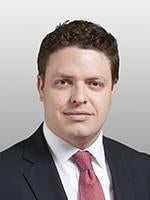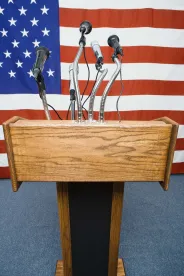The City of St. Petersburg, Florida yesterday passed an ordinance designed to take the question of “Super PACs” to the Supreme Court for the first time. The ordinance, which we discussed in detail earlier this year, imposes a $5,000 limit on contributions to groups that raise money for or make independent expenditures or electioneering communications in city elections. The goal is to set up a test case for the Supreme Court, which campaign finance reformers hope will uphold the limits on contributions to these “Super PACs,” effectively eliminating those organizations.
Supporters of this plan face a difficult path. Every U.S. Court of Appeals in the country that has considered the question has held that a law like this is unconstitutional. After the U.S. Supreme Court decided in Citizens United v. FEC that it is unconstitutional to place limits on corporations making independent expenditures in elections, many of the Courts of Appeals have been asked whether it is constitutional to place similar limits on corporate contributions to groups that agree to make only independent expenditures. Starting with the U.S. Court of Appeals for the D.C. Circuit in SpeechNow.org v. FEC, each of those Courts of Appeals has held the contribution limits are unconstitutional. The Federal Election Commission has agreed.
The ordinance’s supporters claim, however, that the U.S. Court of Appeals for the Eleventh Circuit, which governs Florida, has not considered the question. Their goal is for this law to draw a constitutional challenge, convince the Eleventh Circuit that limits on contributions to Super PACs are constitutionally permissible, and take the matter on to the U.S. Supreme Court.
The law also strictly limits campaign finance activity by corporations where 5% of the company is owned by a single foreign owner, a total of 20% of the company is owned by foreign owners, or where a foreign owner participates in making decisions about the company’s U.S. political activity. This could separately draw a constitutional challenge.
The law was pushed by campaign finance reform group Free Speech for People, which says that it is advancing similar laws in the Massachusetts legislature and potentially in California and Connecticut. We will be watching developments in those states and St. Petersburg closely to see how the plan progresses and what it means for businesses and political committees going forward.




 />i
/>i

